The post VOA Newscasts first appeared on The News And Times – thenewsandtimes.com.
Day: October 27, 2023
The man suspected of killing 18 people and wounding 13 in a shooting rampage in Lewiston, Maine, was found dead of a likely self-inflicted gunshot wound on Friday, ending a 48-hour manhunt that followed the most lethal episode of gun violence in the state’s history.
The body of Robert R. Card, 40, was discovered in the woods near the neighboring town of Lisbon Falls, near where police found his abandoned vehicle shortly after the shooting spree on Wednesday night.
“He is dead,” Maine Governor Janet Mills told a news conference, thanking the hundreds of officers from various agencies involved in the search.
“Like many people, I am breathing a sigh of relief tonight, knowing that Robert Card is no longer a threat to anyone … Now is the time to heal,” Mills said.
Card died of an apparently self-inflicted gunshot wound, said Mike Sauschuck, Maine’s Department of Public Safety commissioner.
Officials said the U.S. Army reservist opened fire on his victims Wednesday night, first at the Just-In-Time Recreation bowling alley, and minutes later at Schemengees Bar & Grille Restaurant, which was hosting cornhole beanbag-throwing games.
Officials have not revealed any suspected motive.
The shootings and prolonged manhunt convulsed the normally bustling but serene community of Lewiston, a former textile hub and the second-most populous city in Maine.
Earlier on Friday, Maine State Police lifted an order that had kept tens of thousands of people in their homes while the manhunt continued.
The town lies on the banks of the Androscoggin River about 35 miles (56 km) north of the state’s largest city, Portland, and nearly as far southwest of Maine’s capital, Augusta.
Card, an Army Reserve sergeant from the nearby town of Bowdoin, has been described by authorities as a trained firearms instructor who served as a petroleum supply specialist when on duty at the military reserve base in Saco, Maine.
Law enforcement officials also said he had a history of mental illness and was committed to a psychiatric facility for two weeks during the summer of 2023, after which he was released.
Within hours of Wednesday night’s bloodshed, police circulated surveillance camera photos from one of the crime scenes of a bearded man wearing a brown, hooded sweatshirt and jeans and carrying what appeared to be a semi-automatic rifle.
The initial trail of clues led to Lisbon town, about 7 miles (11 km) to the southeast of Lewiston, where Maine State Police found a white SUV they believed Card used to make his getaway and parked at a boat launch on the river. Public records showed he owned at least one vessel made by Sea-Doo, a company known for its jet ski-style personal watercraft.
Lisbon Falls, where the body was found, is the next town, still along the river.
As part of their search for Card, police trawled the waters of the Androscoggin River with divers and sonar on Friday, and sent teams of officers door-to-door in neighborhood canvasses seeking additional clues and possible eyewitnesses.
Authorities also officially released the names and ages of the victims for the first time, revealing that a cross section of Lewiston people had been killed, including deaf people playing in the beanbag-throwing tournament, a father-and-son pair of bowlers, and a couple aged 76 and 73.
Four of those killed belonged to the deaf community, Sauschuck said, asking television cameras to include the American sign language interpreter at a press conference in their frames. Nine deaf people were playing in a weekly tournament at Schemengees, the sister of one of the victims told the Lewiston Sun Journal.
Among them was Joshua Seal, 36, the director of interpreting services for the Pine Tree Society, a non-profit organization aiding people with disabilities, the Sun Journal reported, citing Noel Sullivan, the group’s president. Seal provided vital interpreting services for people isolated during the coronavirus pandemic, Sullivan said.
Stephen Vozella, 45, was a postal worker and active member of New England Deaf Cornhole, the group said on its Facebook page, adding that a moment of silence would be held at an upcoming tournament.
Bryan MacFarlane, 41, an avid motorcyclist, was also part of the cornhole tournament at Schemengees, his sister Keri Brooks told the Sun Journal.
Bill Young, 44, and his 14-year-old son Aaron were shot and killed while bowling together, Bill’s brother Rob Young told Reuters.
Husband and wife Bob Violette, 76, and Lucille Violette, 73, were also bowling together in a couples league when they were killed, the Sun Journal reported, citing his daughter-in-law, Cassandra Violette.
Tricia Asselin, 53, was a part-time worker at the bowling alley who was trying to call 911 when shot. Joseph Walker, 57, was a manager at Schemengees who stayed on the scene to help even though he could have escaped through a door near his office, his father, Leroy Walker, told Reuters on Friday.
“We were told that he picked up a butcher knife from the bar area where he was a lot of the time standing and went to attack the shooter,” Leroy Walker said of his son, who he called Joey. The gunman then shot Joey, killing him instantly.
Related Galleries:

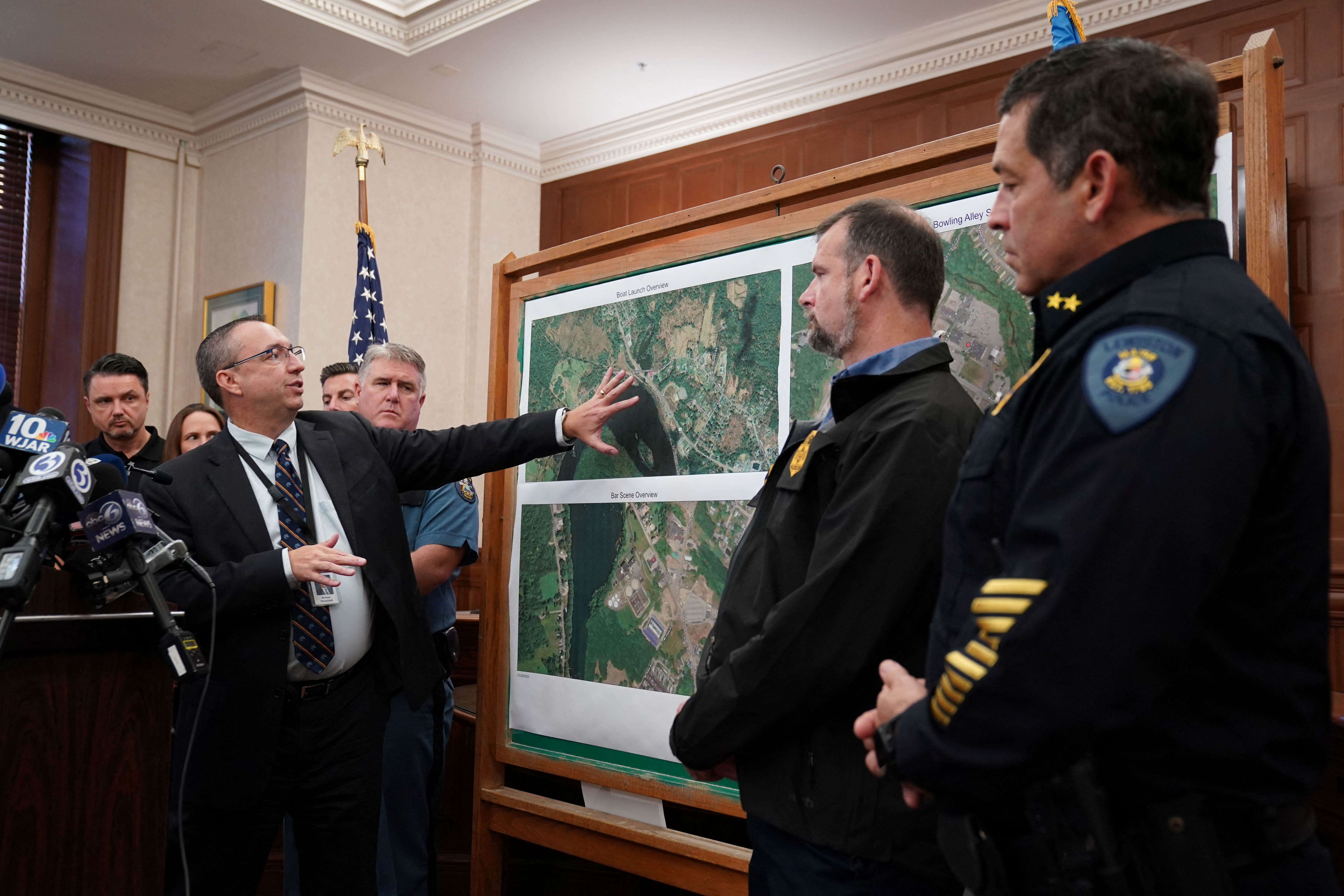
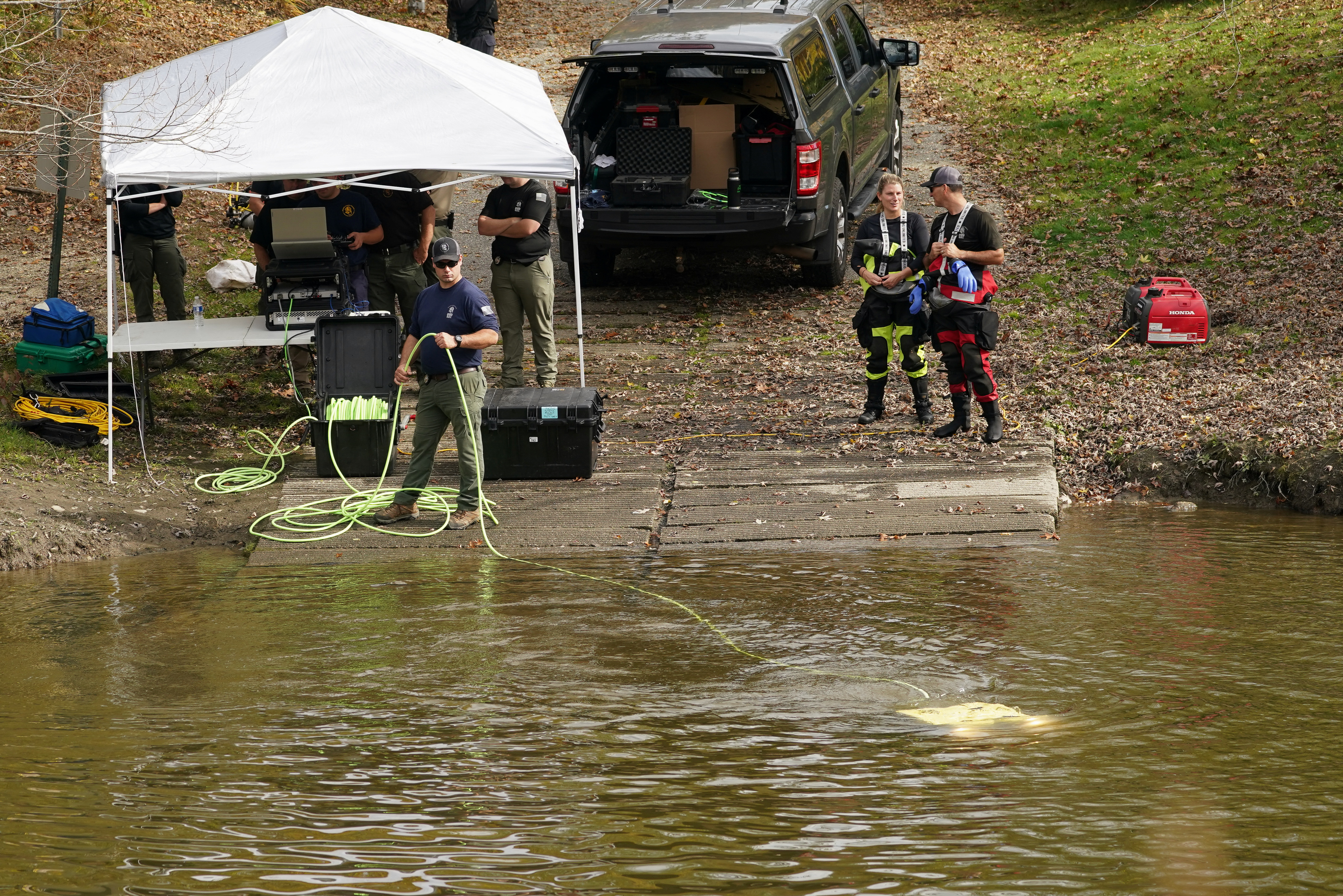
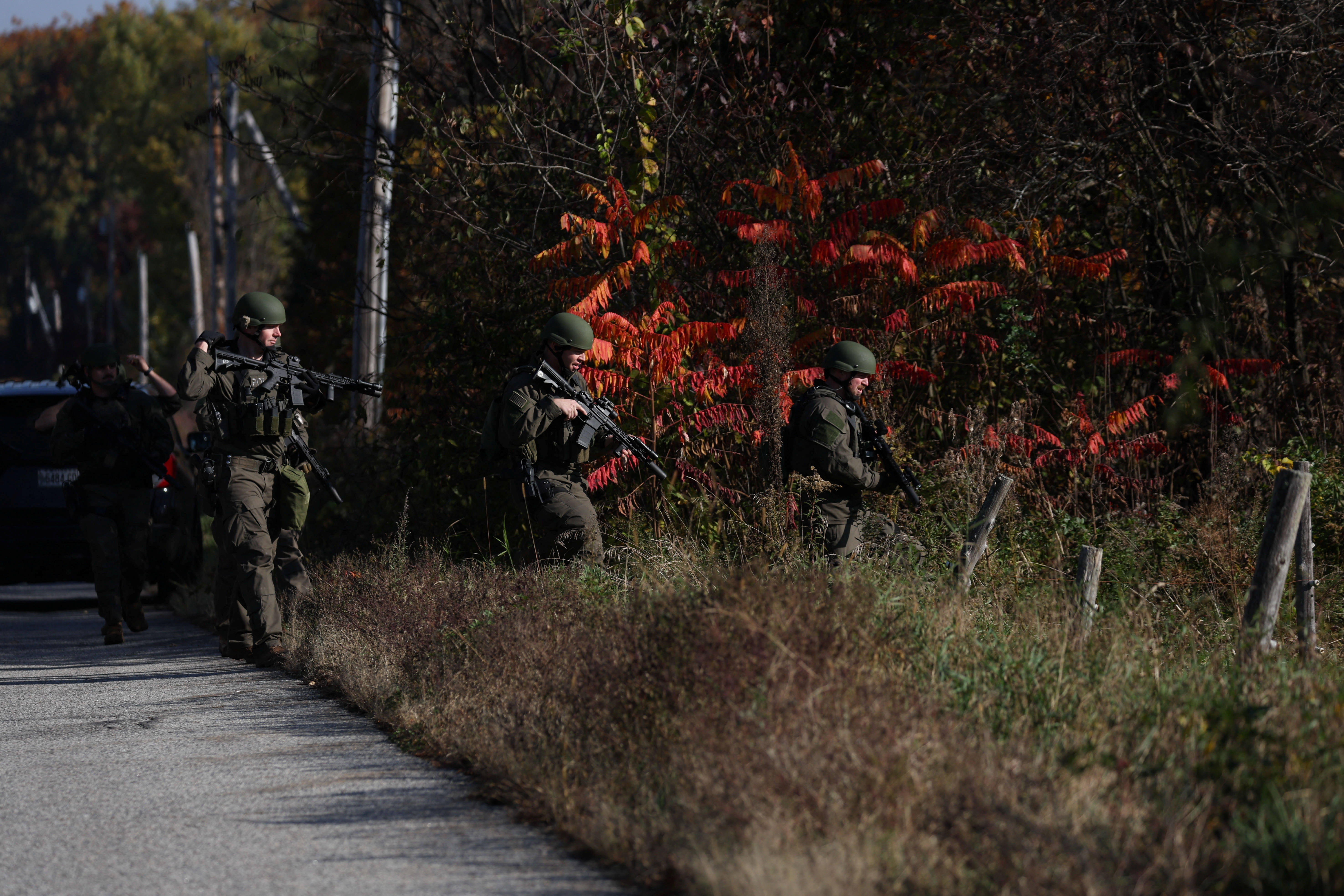

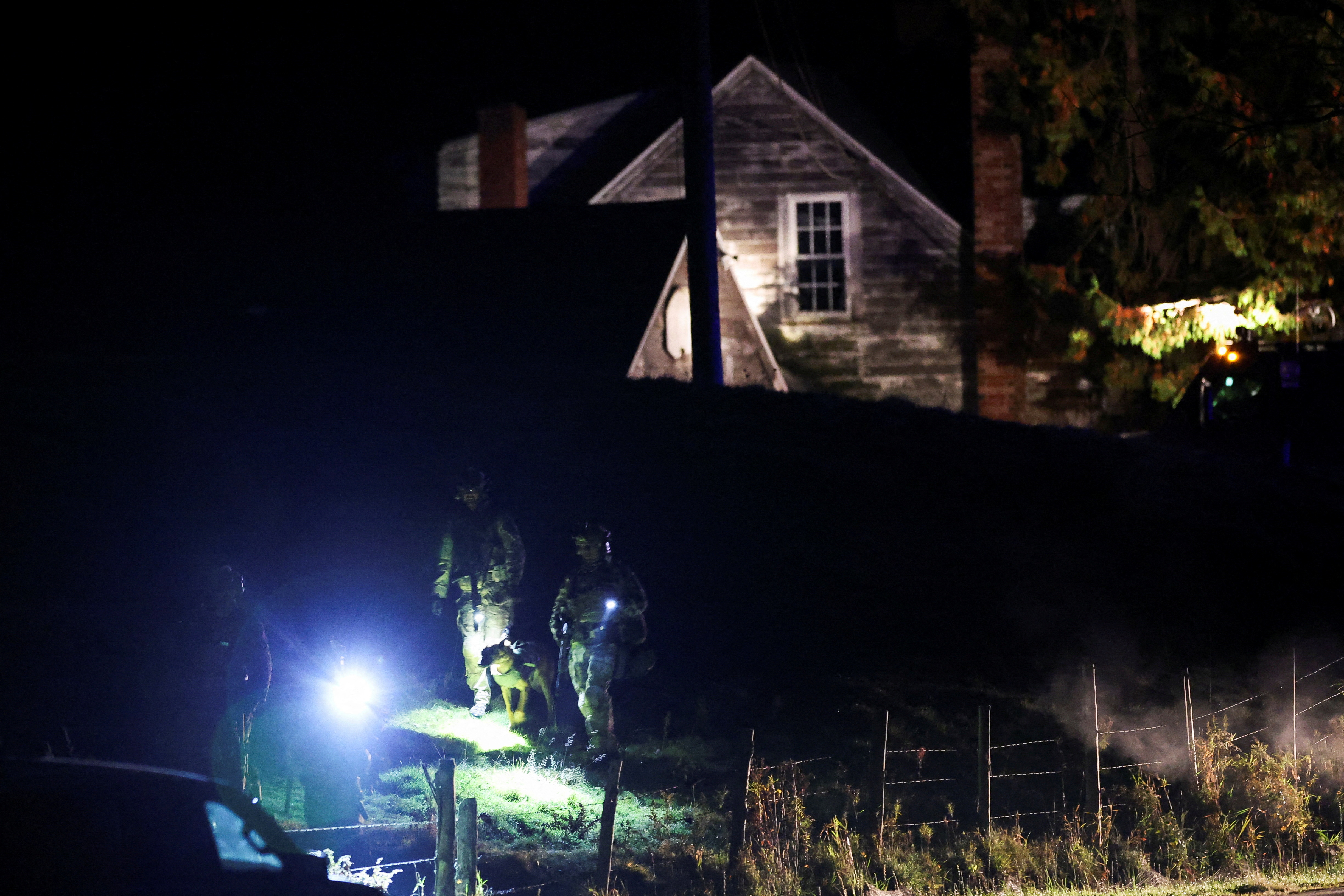
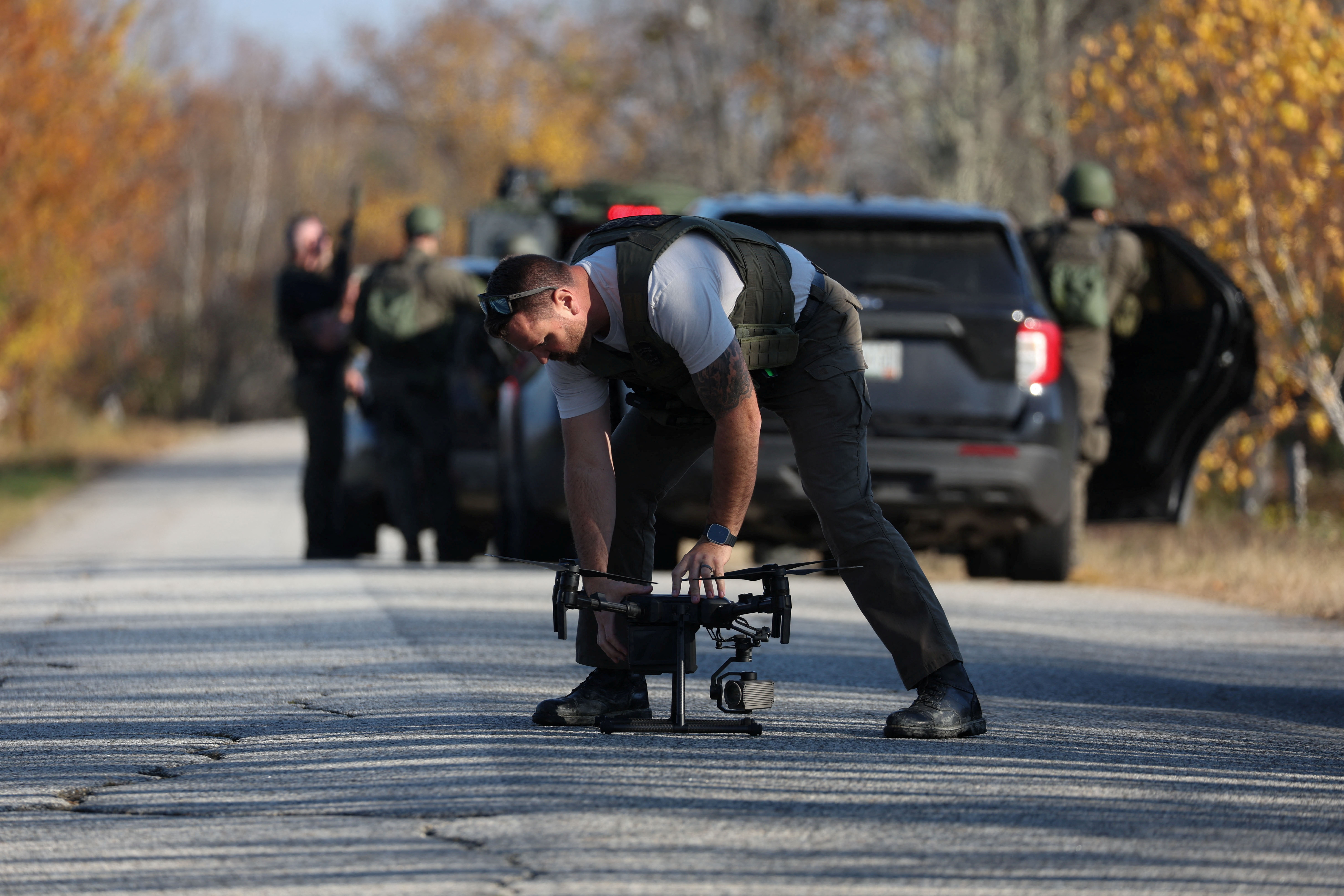

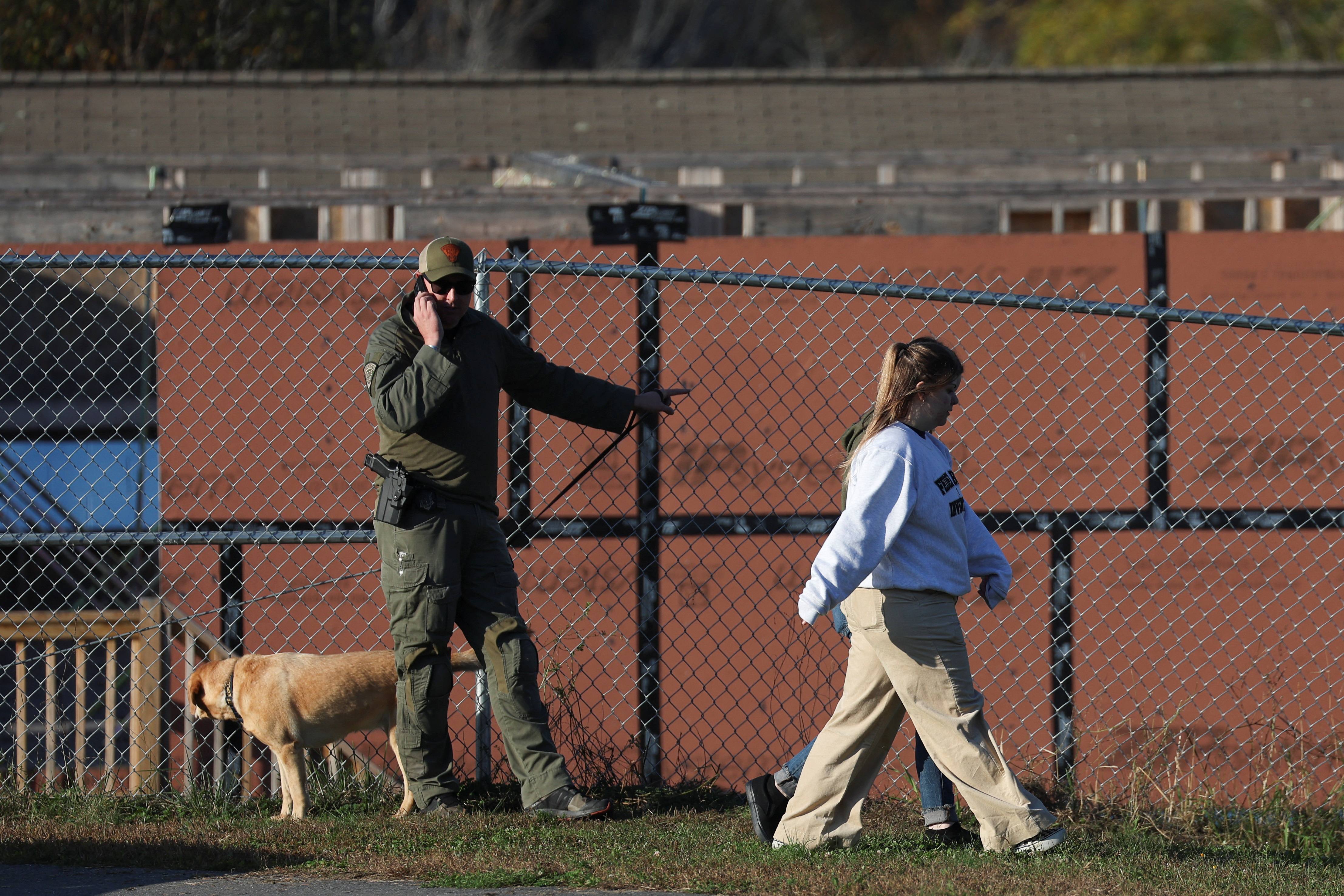
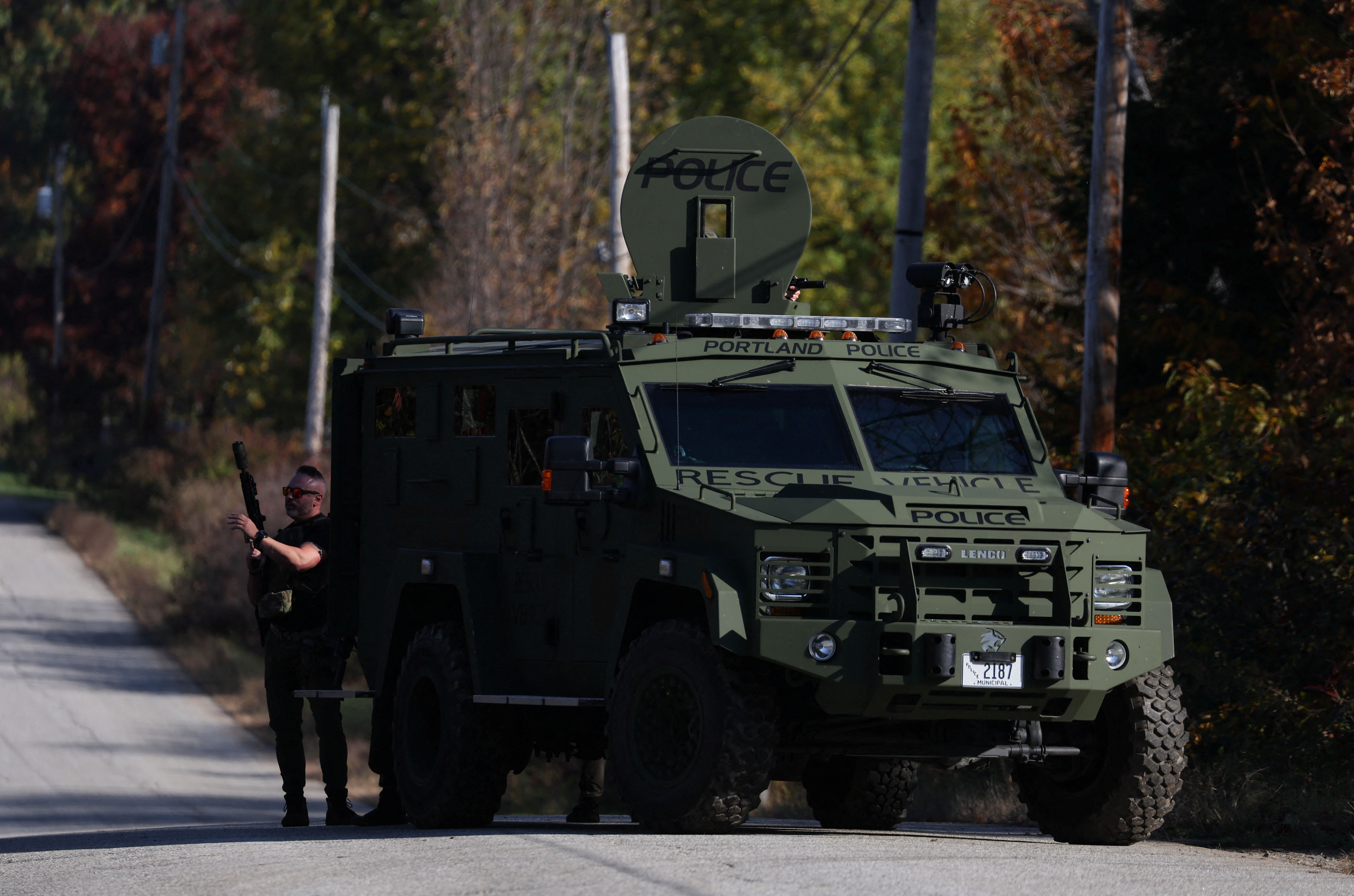

The post Lewiston massacre suspect found dead, apparently of self-inflicted gunshot wound first appeared on The News And Times – thenewsandtimes.com.
Looting ravaged the Mexican city of Acapulco after the iconic beach resort was hammered this week by Hurricane Otis, a record-breaking storm that killed at least 27 people and left thousands of residents struggling to get food and water.
Otis pounded Acapulco with winds of 165 miles per hour (266 km per hour) early on Wednesday, flooding the city, tearing roofs from homes, stores and hotels, submerging vehicles, and severing communications as well as road and air connections.
The cost of devastation left by the Category 5 storm was estimated at billions of dollars, and over 8,000 armed forces members were sent to help the stricken port recover.
“Right now, money’s no use to us because there’s nothing to buy, everything’s been looted,” 57-year-old Acapulco resident Rodolfo Villagomez said after Otis tore through the city. “It was total chaos. You could hear it here hissing like a bull.”
On Thursday evening, people carried off goods including food, water and toilet paper from stores. “We came to get food, because we don’t have any,” a woman told Reuters.
Reuters video showed people carrying boxes from a wrecked supermarket and loading up cars. Inside, shelves were bare.
“There were acts of looting in some places because there was an emergency,” President Andres Manuel Lopez Obrador said on Friday, urging residents not to take advantage of the situation.
Elsewhere, household detritus was littered among ruined deck chairs and jumbles of mangled trees outside wrecked homes.
Speaking at a regular press conference, Lopez Obrador said the government would help people in the city of nearly 900,000 in the southern state of Guerrero, one of Mexico’s poorest.
But many residents said the aid was insufficient.
“All the stores are closed or destroyed,” said Raul Busto Ramirez, 76, an engineer who works at Acapulco’s airport. He blamed looting on shortages and said ATM machines were out of action, leaving people with no cash.
The government has released little information about dead and injured, saying only that four people are also missing. Some officials privately express concern the death toll will rise.
Letitia Murphy said she began to worry when she lost contact with her ex-husband and father of her two children, 59-year-old Briton Neil Marshall, who was in Acapulco when Otis hit.
Murphy said she found out on social media he had died after residents discovered his body close to where he was staying.
“We can’t even get information about him,” she told Reuters by phone. “It’s horrible that we don’t know what to do.”
The Mexican and British governments did not immediately respond to requests for comment.
Another weather front that could produce more heavy rain is expected to gain strength off Central America in the coming days, again moving toward southern Mexico.
Mexican authorities said Otis was the most powerful storm ever to strike Mexico’s Pacific coast. It caught forecasters by surprise, gathering strength with unexpected speed before it came ashore, and surpassed initial predictions.
Still, Lopez Obrador said: “We were lucky.”
“Nature, the creator protected us, even with the fury of the hurricane,” he added. “There’s a lot of material damage but luckily we’re not registering too many deaths.”
To evacuate tourists, an air bridge between Acapulco and Mexico City was being set up on Friday after authorities got the city’s battered airport back up and running.
The government has yet to estimate the cost of Otis, but Enki Research, which tracks tropical storms and models the cost of their damage, saw it likely “approaching $15 billion.” Lopez Obrador urged insurance companies to speed up payouts.
Governments sent messages of solidarity to Mexico, and Pope Francis expressed his condolences on Friday.
U.S. President Joe Biden expressed his condolences for the hurricane’s victims in a brief statement on Friday evening, pledging “full support” to Mexico’s government as well as help ensuring U.S. citizens in the area are safe.
State power utility CFE said on Friday it had restored 50% of the electricity service in Guerrero and Mexican telecommunications company America Movil had re-established nearly 60% of cell service.
Jeff, a 65-year-old Canadian in Acapulco, said he was stuck in the city and worried how he would survive the coming days because “all the stores have been pillaged.”
“The disaster here is unbelievable,” he said. “We don’t see nothing happening except people trying to scavenge everything they can to survive for the next couple of weeks or months.”
Related Galleries:
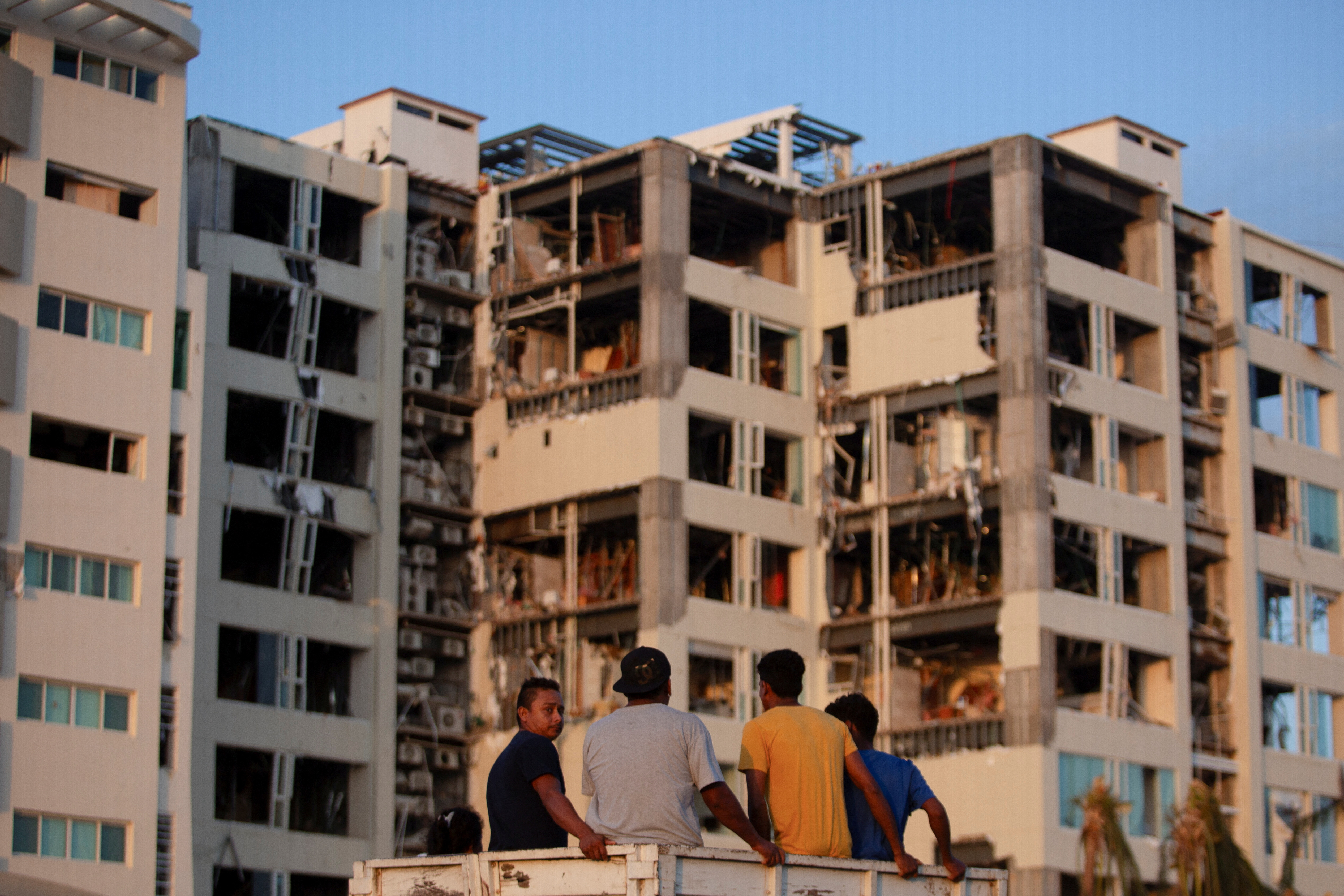
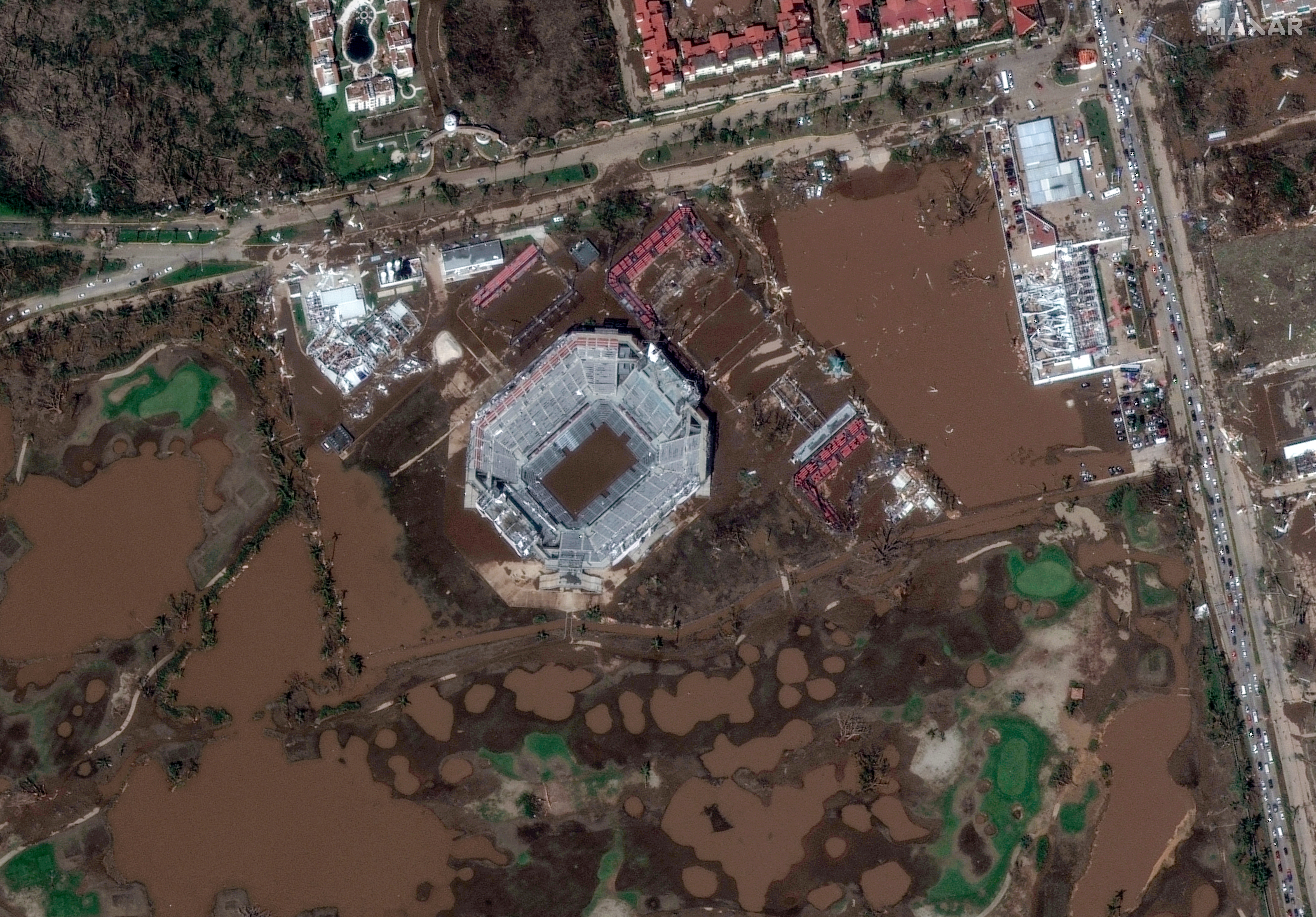
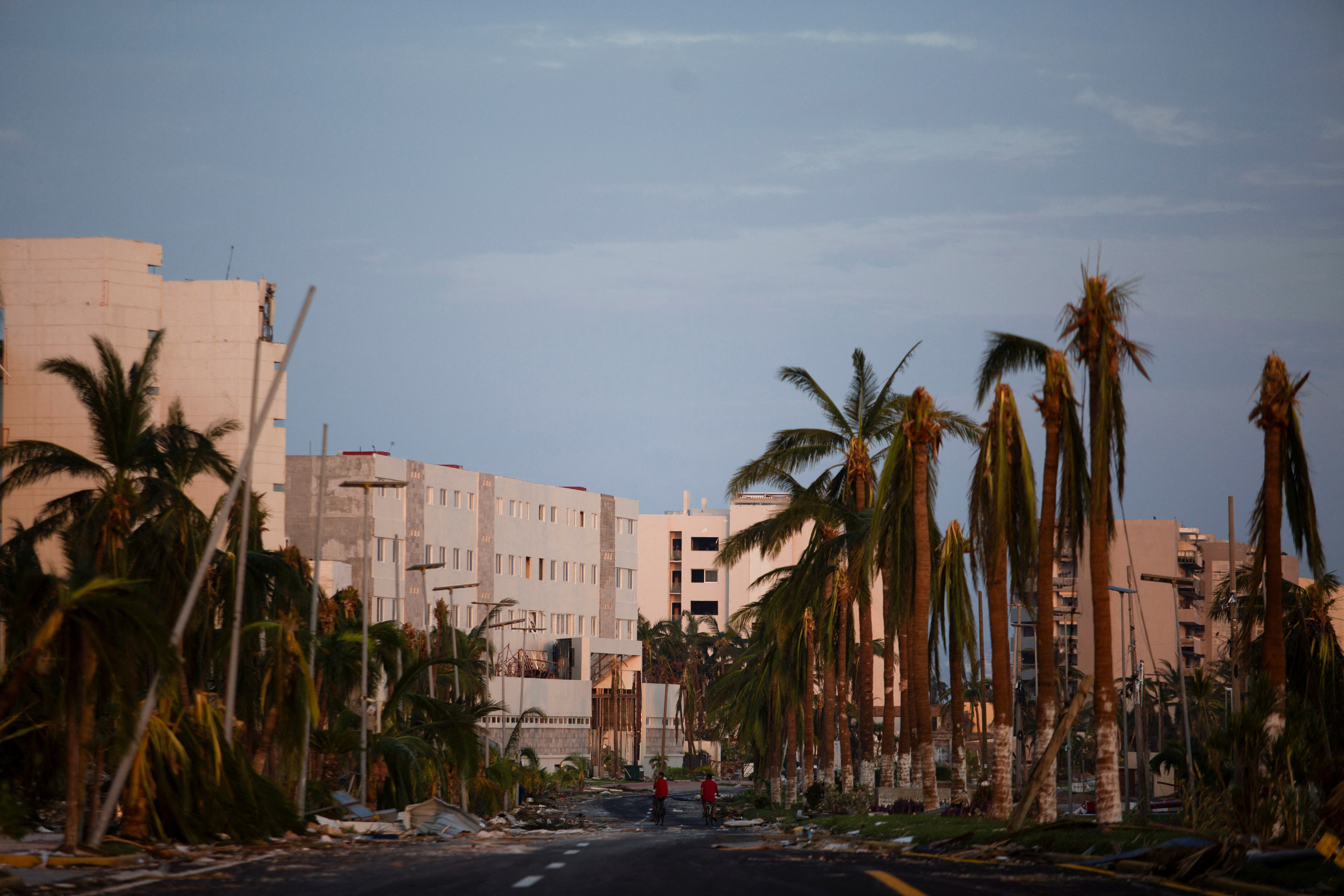

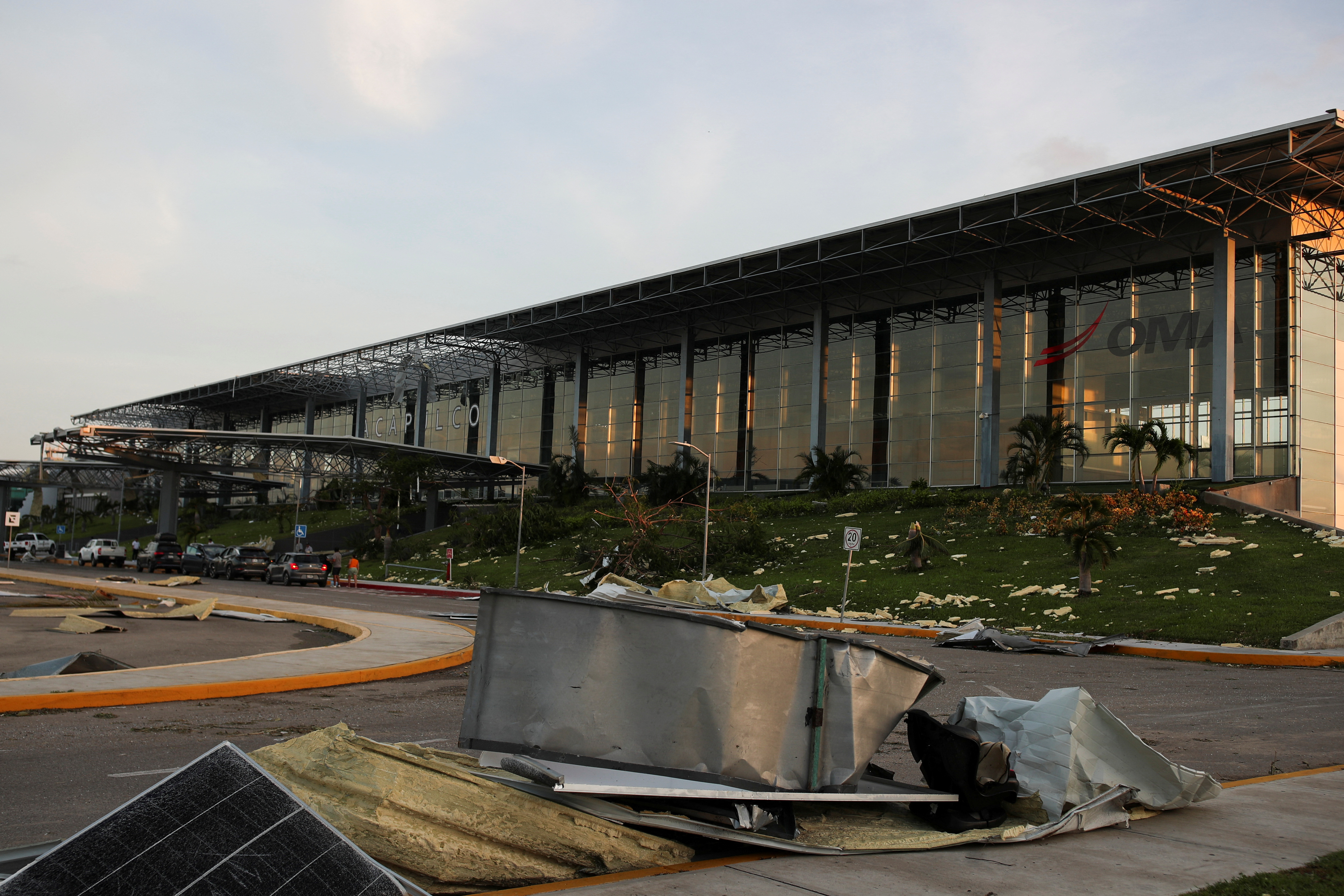
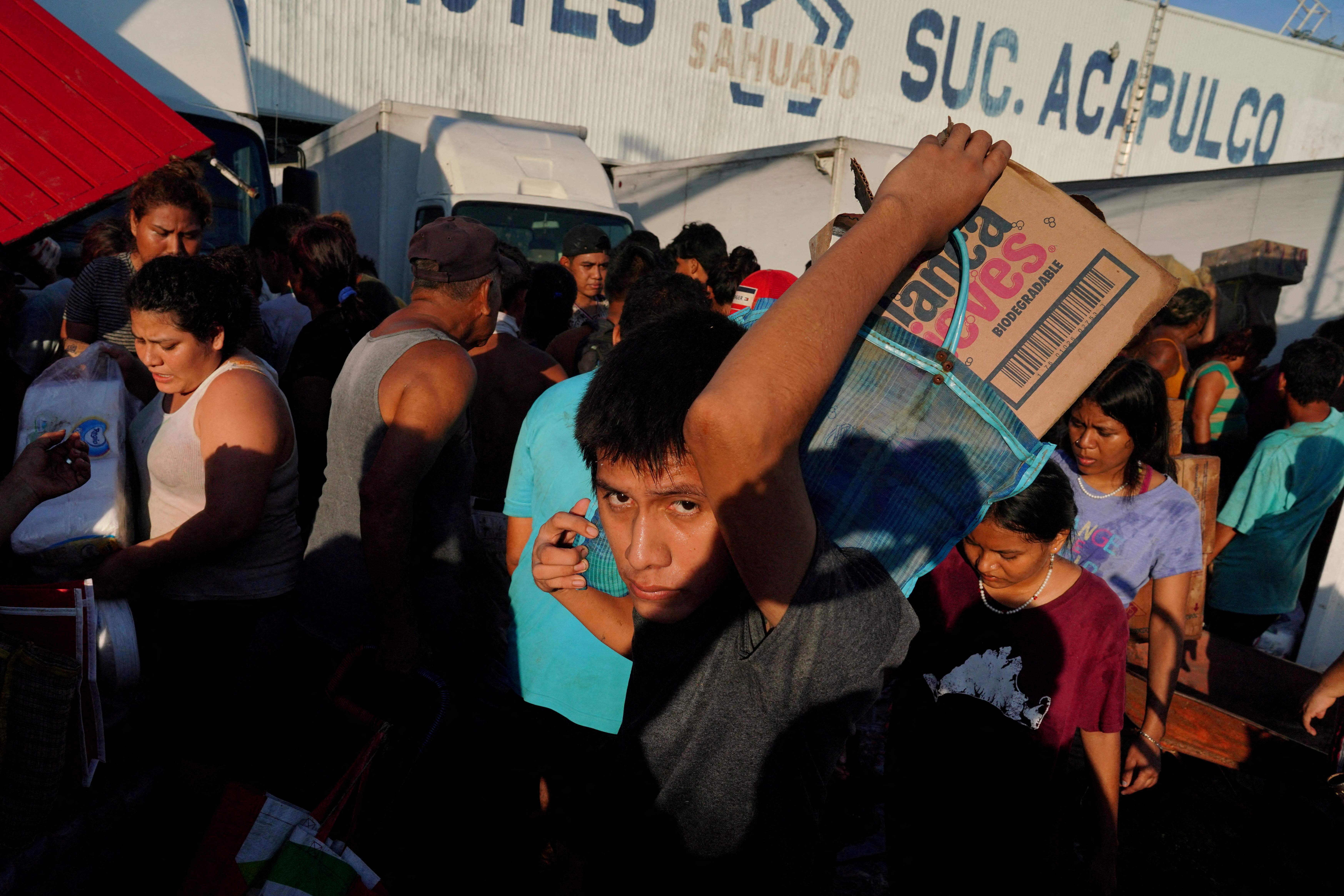
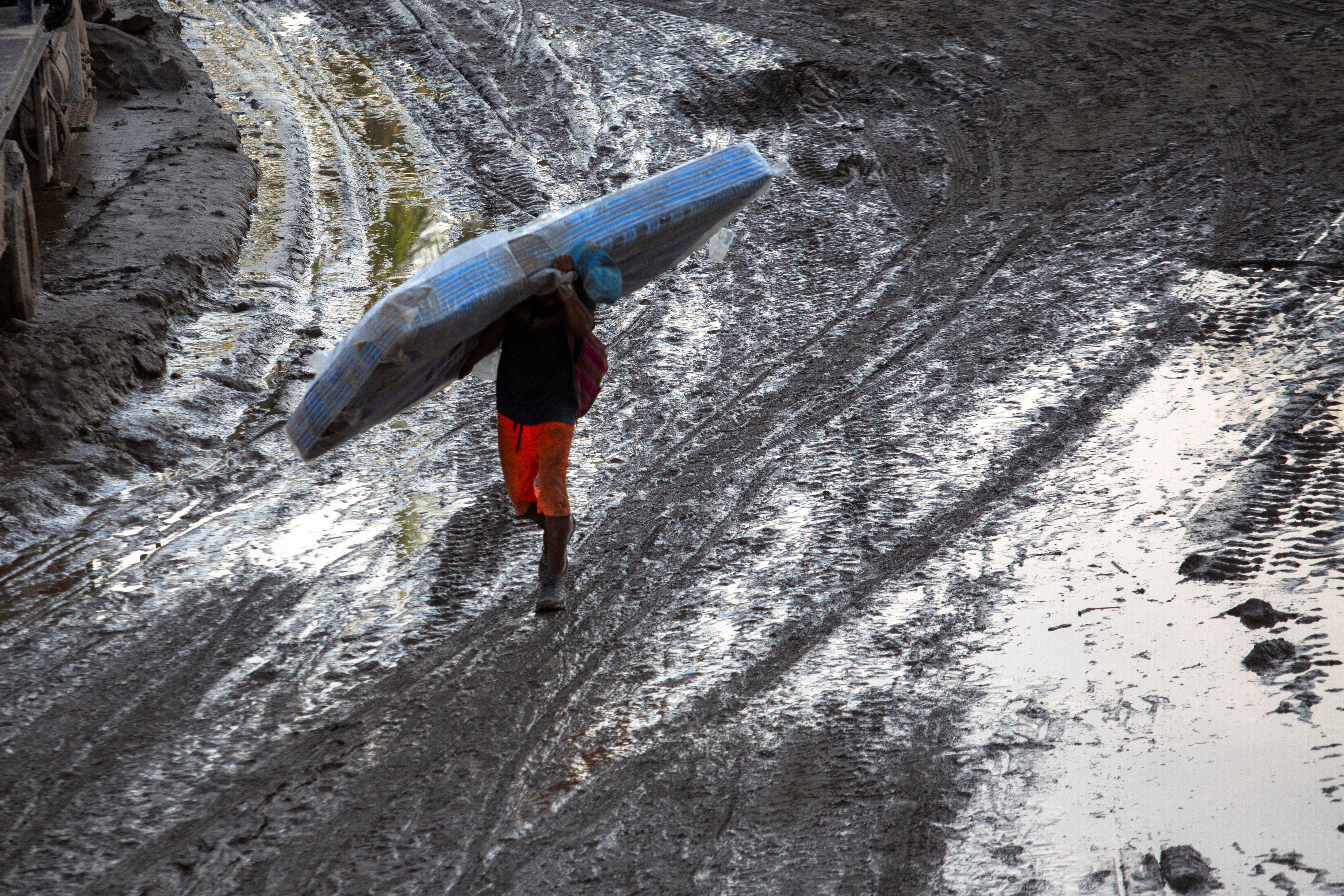
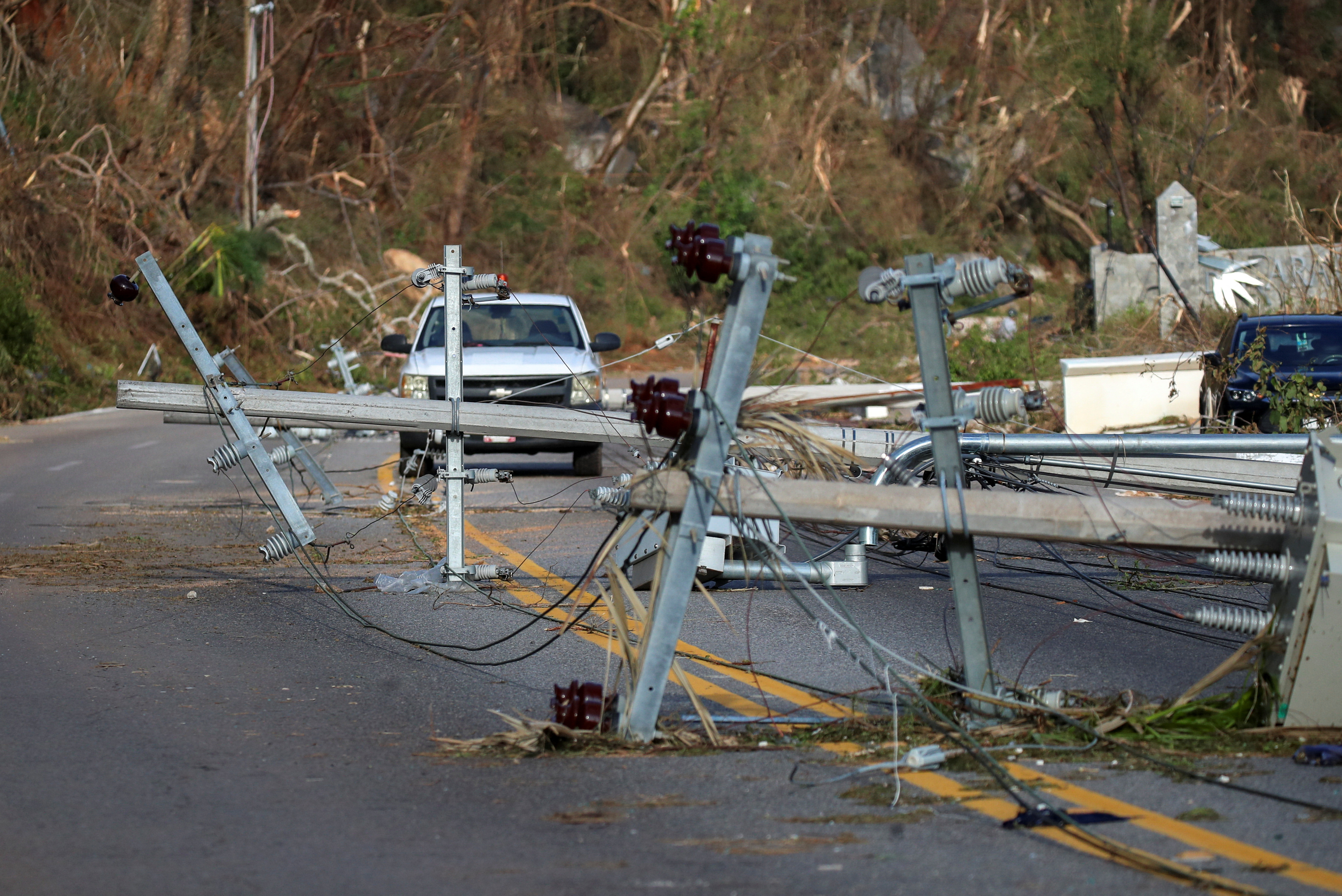
The post Mexico“s Acapulco ravaged by looting after Hurricane Otis first appeared on The News And Times – thenewsandtimes.com.
The man suspected of killing 18 people and wounding 13 in a shooting rampage in Lewiston, Maine, was found dead of a self-inflicted gunshot wound on Friday, ending a 48-hour manhunt that followed the most lethal episode of gun violence in the state’s history.
The body of Robert R. Card, 40, was discovered in the woods near the neighboring town of Lisbon Falls, near where police found his abandoned vehicle shortly after the shooting spree on Wednesday night.
“He is dead,” Maine Governor Janet Mills told a news conference, thanking the hundreds of officers from various agencies involved in the search.
“Like many people, I am breathing a sign of relief tonight, knowing that Robert Card is no longer a threat to anyone … Now is the time to heal,” Mills said.
Card died of an apparently self-inflicted gunshot wound, said Mike Sauschuck, Maine’s Department of Public Safety commissioner.
Officials said the U.S. Army reservist opened fire in a bowling alley and then a bar minutes later on Wednesday night.
The shootings and prolonged manhunt convulsed the normally bustling but serene community of Lewiston, a former textile hub and the second-most populous city in Maine.
The town lies on the banks of the Androscoggin River about 35 miles (56 km) north of the state’s largest city, Portland, and nearly as far southwest of Maine’s capital, Augusta.
Card, an Army Reserve sergeant from the nearby town of Bowdoin, has been described by authorities as a trained firearms instructor who served as a petroleum supply specialist when on duty at the military reserve base in Saco, Maine.
Law enforcement officials also said he had a history of mental illness and was committed to a psychiatric facility for two weeks during the summer of 2023, after which he was released.
Within hours of Wednesday night’s bloodshed, police circulated surveillance camera photos from one of the crime scenes of a bearded man wearing a brown, hooded sweatshirt and jeans and carrying what appeared to be a semi-automatic rifle.
Meanwhile, hundreds of officers from an array of agencies ranging from local police and sheriff’s deputies to the FBI and U.S. Coast Guard joined the search. Canadian authorities, including its border officers, were on alert.
The initial trail of clues led to Lisbon, about 7 miles (11 km) to the southeast of Lewiston, where Maine State Police found a white SUV they believed Card used to make his getaway and parked at a boat launch on the river. Public records showed he owned at least one vessel made by Sea-Doo, a company known for its jet ski-style personal watercraft.
As part of their search for Card, police trawled the waters of the Androscoggin River with divers and sonar on Friday, and sent teams of officers door-to-door in neighborhood canvasses seeking additional clues and possible eyewitnesses.
Earlier on Friday, Maine State Police lifted an order that had kept tens of thousands of people in their homes while the manhunt continued.
Related Galleries:










The post Lewiston massacre suspect found dead, apparently from self-inflicted gunshot wound first appeared on The News And Times – thenewsandtimes.com.

(New York Jewish Week) – A ban on corporal punishment in private schools, proposed in the wake of an extensive New York Times investigation alleging that the practice is prevalent in Hasidic yeshivas, is now law in the State of New York.
New York Gov. Kathy Hochul signed the law on Wednesday after it was unanimously approved by the state legislature, making New York one of just four states — the others being New Jersey, Iowa and Maryland — where the practice is banned in private schools. Corporal punishment has been banned at New York’s public schools since 1985.
“Corporal punishment is unacceptable,” Hochul said in a statement. “This new law will ensure students in every New York school are protected from mistreatment.”
Allegations of corporal punishment were included in the Times series, published last September, that also delved into public funding for private Jewish schools that fell short in teaching secular studies.
“The attitude was constantly that you could get hit,” Ari Hershkowitz, an alumnus of United Talmudical Academy in Williamsburg told the New York Times at the time. “We were constantly under threat of that.”
Richard Bamberger, a spokesman for some Hasidic yeshivas, told the New York Times this week that leaders of the schools had no issue with the new law.
“What they do oppose is the inaccurate suggestion that the legislation arose because of an abuse problem in yeshivas, which the Senate sponsor publicly stated is false,” he said.
Bamberger was referring to State Senator Julia Salazar, a Democrat whose district includes Hasidic neighborhoods in Brooklyn. She introduced the bill the day after the Times published its article, although she later tweeted that she did not have any evidence of a pattern of corporal punishment in yeshivas.
Hasidic leaders and their allies have pushed back on the notion that corporal punishment is common at yeshivas.
“As a yeshiva parent/former student, I’m not familiar with the use of corporal punishment at yeshivas, nor would I tolerate it,” Simcha Eichenstein, a New York State Assembly member representing Borough Park, posted on X in March, when the legislation was proposed.
Charles Lavine, a Jewish Democrat who represents parts of Nassau County in Long Island, sponsored the bill in the Assembly. It defines corporal punishment as “the use of physical force to cause pain or harm to someone accused of breaking a law or rule” and includes “spanking or slapping, hitting with weapons such as paddles, rulers, or belts, and forcing students to perform physically painful activities such as crawling over rough terrain or excessive running.”
“Physical punishment in educational settings is abhorrent and I am pleased that New York is protecting our children by outlawing its use. Students must learn in a safe environment. The message to any abusive adults is very simple, keep your hands off our kids,” Lavine said in a statement.
Yaffed, a Jewish nonprofit that has urged government scrutiny of secular education at Hasidic yeshivas, welcomed the legislation in a post on X, formerly Twitter.
This article originally appeared on JTA.org.
The post New York State adopts ban on corporal punishment proposed in wake of yeshiva probe appeared first on The Forward.
The post New York State adopts ban on corporal punishment proposed in wake of yeshiva probe first appeared on The News And Times – thenewsandtimes.com.
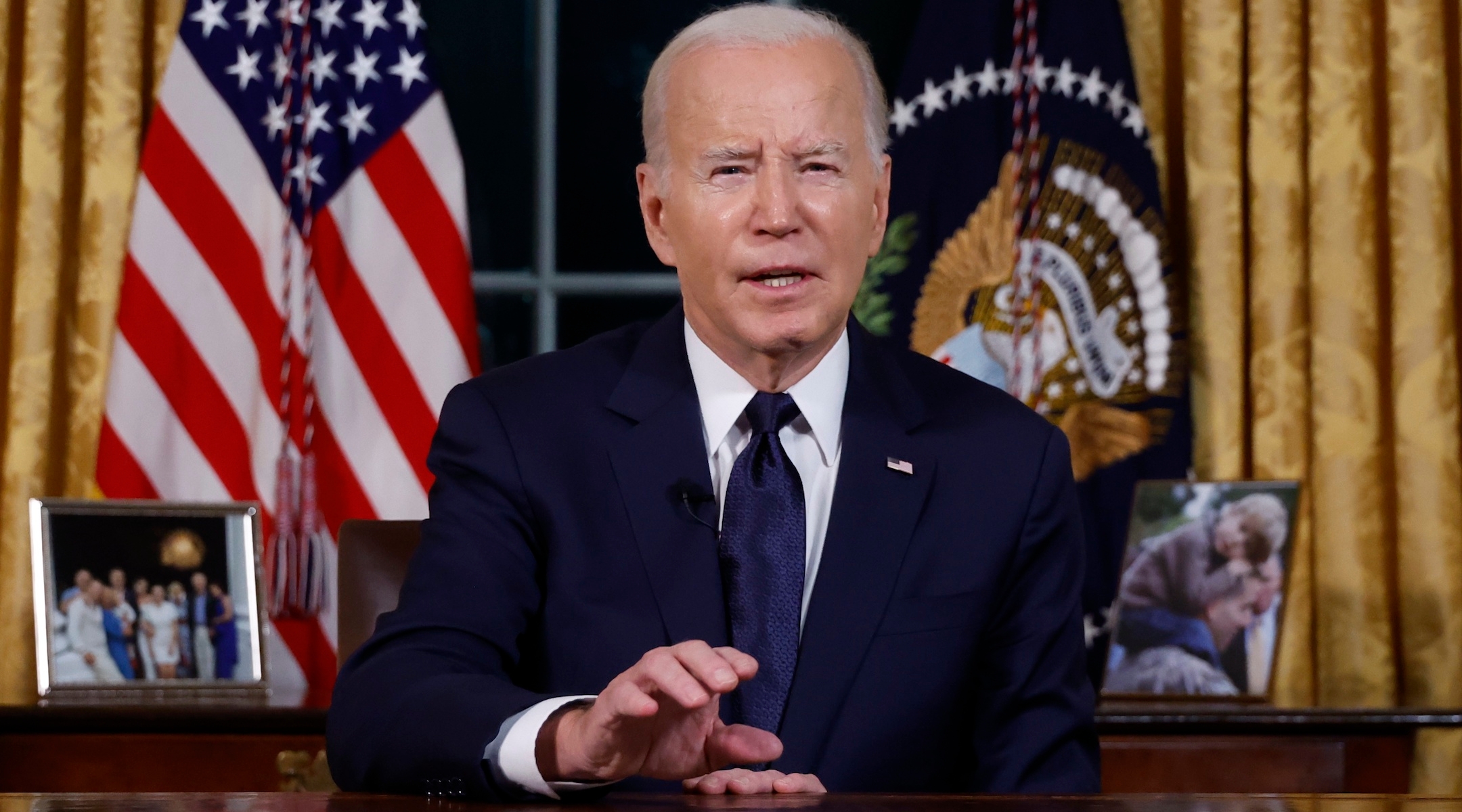
WASHINGTON (JTA) — On the fifth anniversary of the Pittsburgh synagogue shooting, President Joe Biden drew a straight line between the worst antisemitic attack in U.S. history and Hamas’ deadly Oct. 7 invasion of Israel.
“A gunman opened fire on Sabbath worshippers as they prayed, murdering 11 precious souls, wounding many more – including first responders,” Biden said Friday in his statement marking Oct. 27.
“Deepening the wound, today’s remembrance comes on the heels of the deadliest day for the Jewish people since the Holocaust,” Biden said. “On October 7th, a sacred Jewish holiday, the terrorist group Hamas unleashed pure evil against the people of Israel, slaughtering 1,400 Jews and taking hostage hundreds more.” Oct. 7 was the Jewish festival of Shemini Atzeret-Simchat Torah in Israel.
Biden’s weaving the two attacks, one committed by white nationalists, the other by radical Islamist terrorists, into the same cloth, marks a sharp shift from the launch of his campaign and the beginning of his presidency, when he identified the threat of antisemitism as coming principally from the far right. The gunman in Pittsburgh, who was sentenced to death this summer, was influenced by a proliferation of far-right content on social media.
Biden rolled out a strategy to counter antisemitism last May, the first by any presidential administration in U.S. history. A number of U.S. Jewish groups who advised on the strategy urged Biden to take into account the threat of anti-Jewish hatred from the left and other sources as well as the far-right, particularly on campuses, where some Jewish students say they face intimidation from the pro-Palestinian left.
“Under my presidency, we will continue to condemn antisemitism at every turn,” Biden said in his statement. “We are implementing the first-ever national strategy to counter Antisemitism. Because hate never goes away, it only hides until it is given just a little oxygen. And as a nation, we must ensure hate is never given any oxygen.”
A White House spokesman on Thursday specifically called out some campus pro-Palestinian protests as veering into antisemitism.
This article originally appeared on JTA.org.
The post Biden on 5th anniversary of Pittsburgh synagogue shooting: Hamas invasion is ‘deepening the wound’ of antisemitism appeared first on The Forward.
The post Biden on 5th anniversary of Pittsburgh synagogue shooting: Hamas invasion is ‘deepening the wound’ of antisemitism first appeared on The News And Times – thenewsandtimes.com.
Russia loses brigade’s worth of troops in push for Avdiivka, says Zelenskiy; heavy shelling hits Kherson; Macron condemns Orbán’s meeting with Putin
The Ukrainian president, Volodymyr Zelenskiy, claimed that Russian forces have lost at least a brigade’s worth of troops attempting to advance on Ukraine’s eastern town of Avdiivka. Russia began a renewed push to encircle the embattled town in mid-October, trying to overwhelm Ukrainian positions with constant barrages of artillery and waves of troops and fighting vehicles, according to reports.
Russian forces have heavily shelled the centre of the southern Ukrainian city of Kherson, injuring a number of people and damaging at least 10 buildings, a senior local official and emergency workers said.
The European Council has outlined plans to seize the profits from frozen Russian assets and direct billions of euros to support Ukraine. In a set of formal public conclusions after the culmination of the EU leaders summit, it said “extraordinary revenues held by private entities stemming directly from Russia’s immobilised assets” could be directed to support Ukraine and its recovery.
The French president, Emmanuel Macron, has condemned the Hungarian leader Viktor Orbán’s recent meeting and handshake with Vladimir Putin. In the situation we are in with Russia, we should not use these bilateral contacts to negotiate things about ourselves that would weaken our unity [on Ukraine],” Macron said after a meeting of EU leaders in Brussels.
Russia’s top investigative body has said it had opened a criminal inquiry into the attempted murder of former Ukrainian lawmaker Oleg Tsaryov, a pro-Russian figure who was reported to have been lined up by Moscow to lead a puppet administration in Kyiv after Russia’s invasion. He is in intensive care after being shot, a Russian official said.
The wives and family of enlisted Ukrainian soldiers have gathered at Independence Square in Kyiv to call for the right to voluntarily demobilise after 18 months. “Our servicemen are strong, but they are not robots,” protesters shouted during the rally.
The new Slovak prime minister, Robert Fico, has told other EU leaders that €50bn in EU aid to Ukraine should include guarantees that the funds would not be misappropriated, his office said. “Ukraine is among the most corrupt countries in the world,” he claimed.
The post Russia-Ukraine war at a glance: what we know on day 612 first appeared on The News And Times – thenewsandtimes.com.
The Gaza Ministry of Health has calculated that more than 7,000 Palestinians have been killed, including nearly 3,000 children, by the latest Israeli bombing on Gaza. Those living in Gaza are under the constant threat of airstrikes, with little food, water, or access to medical care. This week on Deconstructed, Maram Al-Dada, an aviation engineer based in Florida, joins Ryan Grim; Al-Dada’s family is in Gaza, where he grew up. By the time of the interview, a shocking 46 members of Al-Dada’s family had been killed by Israeli attacks, with the rest wondering when their moment will come. Al-Dada talks about his childhood in Gaza, the escalating restrictions placed on Palestinians, and his family’s experience during these past few weeks.
Note: This episode was recorded on Thursday evening (October 26), before the Friday evening escalation by Israel and before Gaza lost cellular and internet service.
Transcript coming soon.
The post Inside a Gaza Village: “All of Us Will Die, but We Don’t Know When” appeared first on The Intercept.
The post Inside a Gaza Village: “All of Us Will Die, but We Don’t Know When” first appeared on The News And Times – thenewsandtimes.com.
Multiple times in recent days, Israeli tanks and armored vehicles penetrated the Gaza Strip, engaged Hamas militants and hit select targets in preparation for an inevitable, full-scale ground invasion.
“We are preparing,” Israeli Prime Minister Benjamin Netanyahu said Wednesday, ominously hinting at what is to come. “I will not elaborate.”
Israel’s ally, the United States, has appeared steadfast in supporting Israel’s decision.
“They have a right and a responsibility to go after Hamas after what happened on October 7,” National Security Council spokesperson John Kirby told reporters Thursday, noting the Hamas terror attacks that massacred 1,400 people, the vast majority civilians.
The view is shared by multiple counterterrorism, intelligence and security officials, as well as by some experts, who argue there is a compelling case for Israel to take more drastic action to curtail the threat from Hamas — a U.S.-designated terror organization thought to command between 20,000 and 25,000 fighters as well as thousands more from other, smaller extremist groups in Gaza.
These former officials, however, cautioned that even though a ground operation may be justified, it comes with significant risks — to Israel, to Israeli forces and especially to Palestinian civilians living under Hamas rule in Gaza. And some also note, while Israel appears set on this course, it is not the only option.
Israel’s air campaign
The starting point for some of these former officials is Israel’s now three-week-old air campaign, in some cases carrying out as many as 250 airstrikes in a 24-hour period, against purported Hamas targets in Gaza.
The images of the aftermath of these strikes, including flattened neighborhoods, dead or wounded children and grieving families, are admittedly heart-wrenching, they say. But they also point out the Israeli air campaign has yet to stop Hamas from repeatedly launching rockets into Israel.
“You can see why they’re reluctant to leave it to airstrikes,” a former Western counterterrorism official told VOA, speaking on the condition of anonymity because of the sensitivity surrounding the conflict.
“The airstrikes are insufficiently surgical,” the official added, arguing that from a counterterrorism viewpoint, the argument for Israel to agree to a cease-fire after airstrikes alone is weak.
“What you’re doing really is just inviting a return to the status quo and you may not do a great deal of damage to Hamas infrastructure because of a lot of it is hidden, a lot of it is underground,” the official said.
“Have you inflicted enough pain to make it less likely that that same thing will happen again?” the official asked. “Airstrikes have not done the job in the past.”
Daniel Hoffman, a retired U.S. clandestine services officer and former chief of station with the CIA, agreed.
“Israel tried that. They tried to degrade Hamas with an air campaign and deter Hamas, but deterrence failed,” he told VOA.
“Israel’s concluded that they cannot allow Hamas to enjoy ungoverned space in Gaza to plot terrorist attacks, because they’ll do it,” Hoffman added. “So, Israel has to go and take the fight to the enemy, so to speak.”
Alternatives to ground incursion
A former Israeli security official who spoke to VOA said that at one point, Israel could have considered other options.
One would have been to secure the country following the initial Hamas attack and then use the military to create a buffer zone inside Gaza. This option, the former official said, would have pushed Hamas fighters farther back from the border with Israel and given Israel time to seek the release of the approximately 200 hostages taken by Hamas militants.
Israel then could have taken its time, methodically hunting down Hamas leaders and commanders.
But the former Israeli official cautioned that the brutality of the Hamas attack could have made that approach politically untenable.
“Hamas doesn’t view this as another round … Hamas decided to go all in,” the former official said. “This is the ultimate attack that Hamas can do.”
“We have to get rid of Hamas,” the former official said. “If we don’t do it now, when will we?”
As for eliminating Hamas from the air alone, “we cannot just do this from bombing from the air unless we inflict much more civilian casualties,” the former official added.
Bloody battle
Already, the Hamas-run Gaza Health Ministry has blamed Israeli airstrikes for killing more than 7,000 people, including at least 2,900 children and 1,500 women.
U.S. and Israeli officials have publicly challenged those numbers, with Israeli defense officials contending they are targeting only Hamas fighters, weapon stockpiles, infrastructure and military capabilities. No one, however, disputes that the overall civilian death toll among Palestinians in Gaza is likely in the thousands.
Even the former Israeli security official who said a ground incursion would allow Israeli forces to be more surgical in targeting Hamas than an even heavier bombing campaign admitted a ground operation would see the civilian death toll rise.
“Of course, it will be bloody. War is bloody,” the former official said, describing Hamas as “very disciplined.”
“They have built up their defenses very well and very deep,” the former Israeli official said. “They mastered the ability to put a lot of their infrastructure in places where they know there are civilians.”
The Israeli military has sought to back up those claims, sharing intelligence alleging to show how Hamas uses hospitals, including Shifa Hospital in Gaza City, as command-and-control centers for its attack on Israel.
Current and former Israeli officials say those command-and-control centers are connected to bunkers, built underneath schools and mosques, connected by hundreds of kilometers of tunnels, with entrances to the tunnel system placed in civilian homes.
The former Israeli security official said Israel, in the past, has tried to destroy some of the tunnels using so-called bunker buster bombs. But he said the impact was limited.
Not everyone accepts the Israeli claims about Hamas’ widespread use of civilians as human shields.
“It’s preposterous,” said Tahani Mustafa, the International Crisis Group’s senior analyst for Palestine.
“That has been debunked numerous times through numerous conflicts,” she told VOA in an interview shortly after Israel responded to the Hamas terror attack with the start of its air campaign.
“They’re targeting everything, even buildings that host reputable media offices. They’re targeting UNWRA [U.N. Relief and Works Agency] facilities,” she said. “To claim that Hamas is using human shields, that’s implying that UNWRA was complicit in allowing Hamas to use its facilities.”
Israel’s claims, however, have been backed by the White House.
And according to Hoffman, the former CIA official, high civilian death tolls will be a near certainty.
“That is going to be part of the war, because Hamas deliberately engages in military activity, whether it’s launching missiles or hiding themselves, in residential areas,” he said. “So, if you want to strike them, you’re going to run the risk of civilian casualties.”
Several of the former officials who spoke to VOA compared a ground incursion into Gaza to the nine-month-long battle by Iraqi and U.S.-led coalition forces to liberate Mosul from the Islamic State terror group that culminated in July 2017.
An Associated Press investigation found between 9,000 and 11,000 civilians were killed during that campaign, with at least one-third of the deaths caused by Iraqi or coalition forces.
Long-term impact
And, in counterterrorism terms, high civilian death tolls come with other significant risks.
“Going house to house may be the only way to eliminate armed resistance to Israel,” said Katherine Zimmerman, a counterterrorism expert at the American Enterprise Institute in Washington.
“But the question the Israelis must answer before any decision to conduct a ground operation is whether achieving certain conditions today — the elimination of Hamas —worsens conditions for the future whereby Israeli actions trigger radicalization within a next generation,” she told VOA.
Additionally, there are questions about whether Israel’s stated goal of eliminating Hamas as an entity capable of governing Gaza and waging war is even feasible.
“You talk about annihilation or whatever it is because it’s a good soundbite,” the former Western counterterrorism official told VOA. “But you can’t eliminate Hamas because Hamas is far too deeply ingrained.”
Other former officials told VOA that because Hamas is as much an idea as it is a terror group, a ground campaign against Hamas has to be just the start of Israeli efforts.
“You’ve got to drive a wedge between the irreconcilable Hamas terrorists and the regular folk,” said Hoffman. “This is going to be a counterinsurgency for a really long time.”
The post The Case For and Against Israel’s Likely Ground War in Gaza first appeared on The News And Times – thenewsandtimes.com.
Updated Oct. 27, 12:00 p.m.
The arrival of a Hamas delegation in Moscow on Thursday has sparked prompt criticism from both Israel and the United States. Israeli Foreign Ministry spokesman Lior Haiat condemned the Russian government for inviting the envoys, led by senior Hamas leader Moussa Abu Marzook, calling it an “act of support of terrorism” that “legitimizes the atrocities of Hamas terrorists.”
When U.S. National Security Council Coordinator for Strategic Communications John Kirby was asked about the Moscow meeting Thursday, he responded that “this is not a time to be supporting Hamas’ ability to continue to kill Israelis.”
Hamas released a statement after the arrival, saying that it “highly appreciated the position of Russian President Vladimir Putin, as well as the efforts of active Russian diplomacy.”
According to several sources, Abu Marzook, who is believed to be based in Qatar, is currently the No. 2 official of Hamas.
Palestinian Authority Mahmoud Abbas is also set to visit Moscow in the coming days, according to Russian news agency TASS, although Kremlin Spokesman Dmitry Peskov refused to specify the exact date.
TASS also reported that the Russian Ambassador to Israel, Anatoly Viktorov, mentioned that three people with both Russian and Israeli citizenship may have been taken hostage by Hamas militants.
Meanwhile Putin on Wednesday warned that Israel’s war in Gaza could spread beyond the Middle East, criticizing Israel for the rising numbers of civilian casualties in Gaza.
“Our task today, our main task, is to stop the bloodshed and violence,” Putin said at a Kremlin meeting with Russian religious leaders, according to a Kremlin transcript.
For the latest news & views from every corner of the world, Worldcrunch Today is the only truly international newsletter. Sign up here.
Russia has ties to both Israel and the various Palestinian factions, though Putin has previously blamed that the current crisis on “the failure of United States policy in the Middle East,” and that American leaders have neglected the Palestinians and their wish for an independent state.
Russia has criticized the United States’ decision to veto a United Nations Security Council Resolution last week which aimed for a humanitarian pause in the fighting.
Meanwhile, Russia’s own war in Eastern Ukraine rages on, as the Kremlin’s counterparts in Kyiv have staunchly backed Israel.
Ukrainian president Volodymyr Zelensky has offered Israel unconditional support, according to Spanish Daily El País. Zelensky, many analysts note, is hoping to prevent the world’s attention from shifting towards Israel, and neglecting his country’s war against Russia.
Israel has remained ambiguous on the Russia-Ukraine War however, as roughly 30% of Israelis are of Russian origin. Israel also maintains a strategic relationship with Russia to retain access to Syrian airspace, which is largely under Russian control, in order to launch air-strikes on Iranian militias in the country. While Israel condemned the initial Russian invasion, it has refused to enact sanctions on Russia or supply weapons to Kyiv.
The United States launched airstrikes against Iranian facilities in Eastern Syria Friday morning, after announcing that 19 U.S. troops had suffered “traumatic” brain injuries last week — due to attacks by Tehran-backed militants in Iraq and Syria. In a press conference, Pentagon Spokesman Brig. Gen. Patrick Ryder confirmed that there have been at least 12 drone or rocket strikes on US forces in Iraq and four in Syria by Iranian-backed Militias since October 17.
Ryder said there are currently some 2,500 U.S. servicemen in Iraq and 900 in Syria, primarily to assist local forces countering ISIS. The Pentagon has significantly increased its presence in the region since the October 7 Hamas attacks on Israel, looking to dissuade Iran’s militias in Iraq, Syria, Yemen, and most potently, Lebanon, from spreading the war to other countries. American Troop counts have been increased throughout the Middle East, and the US has expanded its naval presence in both the Mediterranean and Red Seas.

Screenshot of a video posted by the IDF showing a ground incursion into Gaza
Israeli troops conducted “targeted raids” inside Gaza for a second consecutive night before withdrawing, the Israel Defense Forces (IDF) said in statement Friday.
Israel Defense Forces spokesperson Daniel Hagari said the ground raids into Gaza will continue in the coming days to prepare for the next stages of war. He said the IDF continues its strikes against Gaza from air and sea, and is focusing on killing senior Hamas commanders and destroying Hamas infrastructure.
“There will be more,” vowed Israeli Defense Minister Yoav Gallant at a news briefing Thursday. Gallant’s comments echoed Prime Minister Benjamin Netanyahu’s address on Wednesday, during which he said Israel is “raining down hellfire on Hamas” and “preparing for a ground incursion.”
Israeli troops carried out another “targeted raid” early Thursday with tanks rolling into northern Gaza, before withdrawing hours later from the enclave.
A video published by the Israel Defense Forces showed tanks and armored vehicles, including a bulldozer, moving on a road near a fence. The tanks fired artillery, and some destruction could be seen nearby.
In a statement, the IDF said the operation was “preparation for the next stages of combat.”
Meanwhile, a report by local radio described the raid as a “relatively large” ground incursion, suggesting it was the biggest since Israel started massing forces on the border of Gaza in preparation for a full-scale ground invasion.
Indeed on Wednesday night, Israel Prime Minister Benjamin Netanyahu confirmed for the first time that Israel was “preparing a ground invasion” of Gaza that would be aimed at destroying Hamas.
Netanyahu’s statement and Thursday’s incursion come amid rising debate in Israel over the timing of the ground war.
Earlier this week, Daniel Hagari told reporters that the military was “ready and determined” for the next stage in the war, and was awaiting political instruction.
But according to The Times of Israel, the Israel Defense Forces believes that in order to attain the government’s objectives in the war against Hamas, the military must begin its ground offensive in Gaza “sooner rather than later.”
Israel’s allies including the U.S. have urged Israel to delay the ground offensive in order to allow humanitarian aid to pass into Gaza and provide time to win the release of the more than 200 hostages Hamas is holding.
Raphael Cohen, the director of the Strategy and Doctrine Program of RAND Project AIR FORCE, says one possible factor delaying the ground offensive is the fact that Israel has mobilized 350,000 reservists without them being trained. “It is important to know that that mobilization has tripled the size of the Israeli Defense Forces,” Cohen told Al Arabiya. “Now if you’re going to do that, so … you want to get them retrained.”
The army has brushed off such concerns, insisting that the ground offensive is ready to be launched, questioning Prime Minister Benjamin Netanyahu’s decision to hold off the assault.
According to French daily Les Echos, an Israeli government minister quoted anonymously by several media described Netanyahu as a “coward” for postponing the ground offensive.
Hagari, the army spokesman, stressed that the army had completed its preparations and was ready for action as soon as the government gave the order. IDF has told the government that it is fully prepared to enter Gaza, even at the risk of heavy casualties to soldiers, and amid ongoing attacks by Hezbollah in northern Israel that risk expanding the war to another front. The IDF has already heavily reinforced the Lebanon border, but most forces remain near Gaza, ahead of the expected ground offensive.
One of Netanyahu’s closest confidants, retired army general Itzhak Brik, is openly opposed to an invasion of Gaza, which he deems ultimately pointless and dangerous. He advocates destroying Hamas’s network of dozens of kilometers of tunnels by aerial bombardment, rather than endangering the lives of soldiers.
According to a poll this week, Israelis are fully behind the soldiers and reservists: 87% say they have confidence in the army, which is 2% more than before the war. The government’s credibility, on the other hand, has hit an unprecedented low score of 18%, compared with 43% in June.
All acknowledge the weight of the decision to take the war to the next level with a ground invasion. As one senior government official told NBC News, Netanyahu has not settled on an exit plan for how and when Israelis would leave Gaza after the invasion, which could shape the state of the region for the foreseeable future.
“That’s a huge added dose of anxiety and tension into what is already a tense and anxious, and what is a politically fraught, moment,” said Robert Satloff, the Howard P. Berkowitz chair in U.S. Middle East policy at the Washington Institute for Near East Studies “Add it all up and they haven’t made a decision to go in yet.”
Netanyahu’s statement and Thursday’s incursion come amid rising debate in Israel over the timing of the ground war.
Earlier this week, Daniel Hagari told reporters that the military was “ready and determined” for the next stage in the war, and was awaiting political instruction.
But according to The Times of Israel, the Israel Defense Forces believes that in order to attain the government’s objectives in the war against Hamas, the military must begin its ground offensive in Gaza “sooner rather than later.”
Israel’s allies including the U.S. have urged Israel to delay the ground offensive in order to allow humanitarian aid to pass into Gaza and provide time to win the release of the more than 200 hostages Hamas is holding.
Raphael Cohen, the director of the Strategy and Doctrine Program of RAND Project AIR FORCE, says one possible factor delaying the ground offensive is the fact that Israel has mobilized 350,000 reservists without them being trained. “It is important to know that that mobilization has tripled the size of the Israeli Defense Forces,” Cohen told Al Arabiya. “Now if you’re going to do that, so … you want to get them retrained.”
China plans to provide 15 million yuan ($2.05 million) worth of humanitarian aid to Gaza, according to Reuters. The aid is said to primarily consist of food and medicine.
China has remained relatively neutral in its stance on the Israel-Hamas war, calling itself “a friend to both Israel and Palestine, according to The Washington Post. China has looked to contrast itself from the United States and other Western countries that are the largest backers of Israel, and have lost trust in the Arab world.
Last week, China called for an “immediate” cease-fire and expressed “deep disappointment” when the United States vetoed a United Nations Security Council resolution calling for a humanitarian pause in the fighting.
Other notable countries that have announced new aid packages since the war began are India, Turkey, the United States and the European Union (much less than the amount promised to Israel), Morocco, and of course Egypt.
Al Jazeera condemns the killing of its journalist Wael Al-Dahdouh’s family in Gaza. pic.twitter.com/EYJShQt6J9
— Al Jazeera English (@AJEnglish) October 25, 2023
Most of the family of Wael Dahdouh, Al Jazeera Arabic’s bureau chief in Gaza, has been killed in an Israeli air strike, according to the Qatari state-sponsored news agency. The death of Dahdough’s wife, son, daughter and grandson took place in central Gaza’s Nuseirat Refugee Camp, where the family had evacuated to.
“We had our doubts that the Israeli occupation would not let these people go without punishing them. And sadly, that is what happened. This is the ‘safe’ area that the occupation army spoke of,” uttered Dahdough, speaking to Al Jazeera upon leaving the hospital where his family members’ bodies were brought to.
Al Jazeera has become a prominent news agency in the Middle East over the past several decades, and its coverage during conflicts such as these is widely considered to be representative of the Palestinian perspective.
At least 24 journalists have been killed since the outbreak of the war in the Middle East, including 20 Palestinians, three Israelis and one Lebanese, according to the non-profit Committee to Protect Journalists.
 “I’m not going to Israel,” titles Istanbul-based daily Hürriyet, quoting Turkish President Recep Tayyip Erdoğan, who called off a planned visit to Israel and lambasted Israel’s bombing campaign in Gaza. The leader condemned the “inhumane” war in Gaza and said he viewed Hamas as “liberators” fighting for their own land.
“I’m not going to Israel,” titles Istanbul-based daily Hürriyet, quoting Turkish President Recep Tayyip Erdoğan, who called off a planned visit to Israel and lambasted Israel’s bombing campaign in Gaza. The leader condemned the “inhumane” war in Gaza and said he viewed Hamas as “liberators” fighting for their own land.Brazilian President Luiz Inácio Lula de Silva said the war in the Middle East constituted a “genocide,” according to Brazilian public news stationAgência Brazil. Though he did not cite Israel explicitly, the words appear to be the strongest condemnation of the Israeli military’s response in Gaza from a major world leader.
“It’s not a war, it’s a genocide that has killed nearly two thousand children who have nothing to do with this war, they are victims of this war,” Lula said. “And frankly, I don’t know how a human being is capable of war knowing that the result of that war is the death of innocent children.”
Brazil has called for the release of the Israeli hostages and avoiding civilian casualties in Gaza. “What is currently happening in the Middle East is serious, and it’s not a question of discussing who is right or who is wrong, who fired the first shot and who fired the second,” he added.
Israel wholeheartedly rejects the Turkish President’s harsh words about the terrorist organization Hamas.
Hamas is a despicable terrorist organization worse than ISIS that brutally and intentionally murders babies, children, women and the elderly, takes civilians hostage and uses… pic.twitter.com/LU4mJGz18v— Lior Haiat
(@LiorHaiat) October 25, 2023
Israel on Wednesday rejected Turkish president Recep Tayyip Erdogan’s assertion that the Palestinian militant group Hamas was “not a terrorist organization.” Erdogan said in a speech on Wednesday that “Hamas is a group for liberation and of mujahideen fighting to protect their land and citizens.”
Israel’s foreign ministry spokesperson Lior Haiat wrote on social media “Israel wholeheartedly rejects the Turkish president’s harsh words about the terrorist organization Hamas.”
Speaking earlier to a group of his party’s MPs, Erdogan also said Israel “can view Hamas as a terrorist organization along with the West. The West owes you a lot. But Turkey does not owe you anything.” He urged Israel to stop attacking Gaza, saying that Israel’s actions were one of the “bloodiest, most disgusting and most savage attacks in history”.
Erdogan also announced that he had cancelled a planned trip to Israel, saying Prime Minister Benjamin Netanyahu had “misused our goodwill”.
Hezbollah’s longtime leader, Hassan Nasrallah, met top officials from Hamas and the Palestinian Islamic Jihad on Wednesday to coordinate their actions in the current conflict against Israel. According to a Hezbollah statement, Nasrallah met Hamas deputy chief Saleh Al-Arouri, and the secretary general of Palestinian Islamic Jihad Ziad Nakhla. There was no indication of where the meeting took place.
“An assessment was made of…what the parties of the resistance axis must do at this sensitive stage to achieve a real victory for the resistance in Gaza and Palestine and to stop the treacherous and brutal aggression against our people,” the statement said.
The Hezbollah press office also released a handwritten letter by Nasrallah commending those who have died fighting Israel, his first statement since the start of the war.
Hezbollah, which has its main base on the Israel-Lebanon border, could become involved in the Hamas-Israel war. In Lebanon, Hezbollah is officially considered a “resistance” group tasked with confronting Israel, which Beirut classifies as an enemy state. Much of the Western world classifies it, along with Hamas and Islamic Jihad, as terrorist organizations.
Read this report from opposition Iranian source Kayhan-London on the so-called “axis of resistance,” translated from Persian by Worldcrunch.

UN Secretary-General Antonio Guterres speaks during the Security Council open debate on the ongoing conflict between Israel and Palestine
Israel has lashed at UN Secretary-General António Guterres’ harsh criticism of its attacks on Gaza, demanding his resignation Wednesday and refusing a visa to UN humanitarian affairs chief Martin Griffiths.
On Tuesday, Guterres said that the “appalling attacks” by Hamas against Israel on October 7 cannot justify the “collective punishment of the Palestinian people.”
The UN chief demanded an immediate cease-fire, and called out “the clear violations of international humanitarian law that we are witnessing in Gaza.”
Guterres added: “Nothing can justify the deliberate killing, injuring and kidnapping of civilians – or the launching of rockets against civilian targets. All hostages must be treated humanely and released immediately and without conditions.”
Addressing the UN, the secretary-general then went on to say the attack on Israel did not happen “in a vacuum” and followed “56 years of suffocating occupation” for the Palestinian people by Israel.
“They have seen their land steadily devoured by settlements and plagued by violence,” Guterres said of the Palestinian people. They’ve seen “their economy stifled; their people displaced and their homes demolished. Their hopes for a political solution to their plight have been vanishing.”
Israel’s ambassador to the UN, Gilad Erdan, said Guterres should resign, calling the speech “shocking”, saying that the secretary general “views the massacre committed by Nazi Hamas terrorists in a distorted and immoral manner.”
Read more on Guterres’ statement from Die Welt’s editor in chief, translated from German by Worldcrunch.
Nearly 600,000 internally displaced people are sheltering in 150 @UNRWA facilities.
Our shelters are FOUR times over their capacities – many people are sleeping in the streets as current facilities are overwhelmed.
At least 40 @UNRWA installations have been impacted. pic.twitter.com/2nHuZBSN7T
The post Israel And U.S. Condemn Kremlin Meeting With Hamas Envoy first appeared on The News And Times – thenewsandtimes.com.
